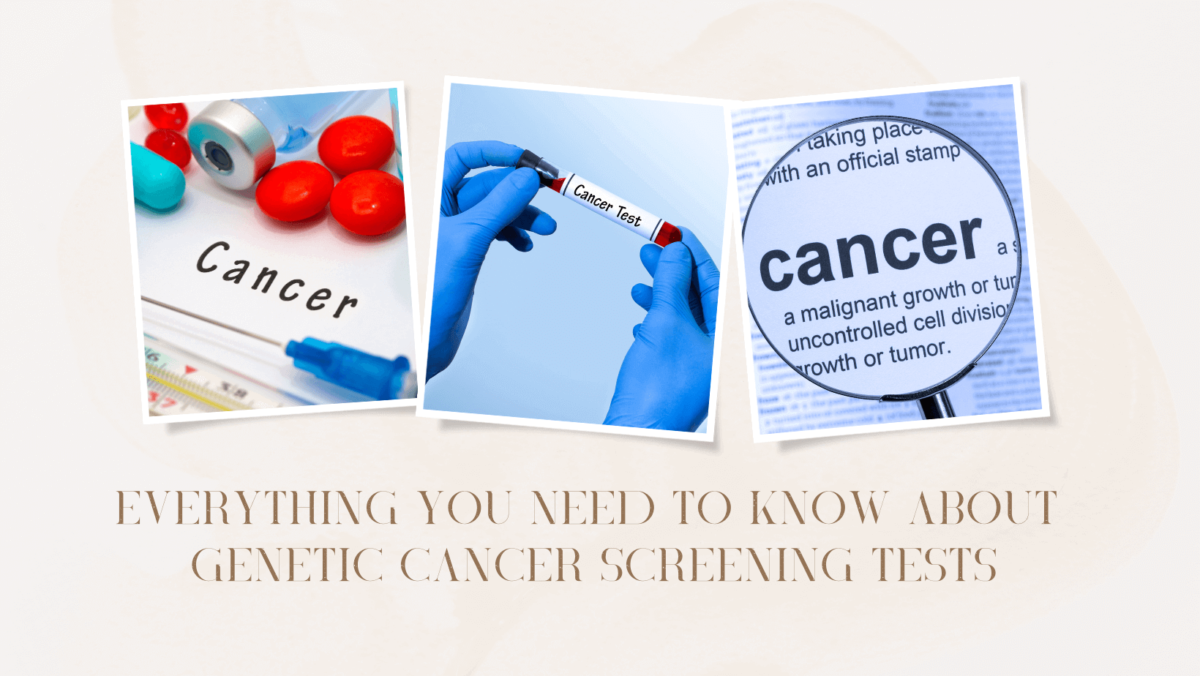Cancer is a leading cause of death worldwide, and the risk of developing the disease is influenced by a combination of environmental and genetic factors. Genetic cancer screening tests have become increasingly popular in recent years, as they offer a way to identify individuals who may be at increased risk of developing certain types of cancer.
For hereditary genetic testing, feel free to contact Miracle Inside in the UK. They provide the best service as per your requirements. In this post, we will discuss everything you need to know about genetic cancer screening tests, including what they are, how they work, and their benefits and limitations.
What Are Genetic Cancer Screening Tests?
Genetic cancer screening tests are medical tests that are used to look for specific changes or mutations in a person’s genes that may increase their risk of developing certain types of cancer. These tests are usually done on a blood or saliva sample, and the results can help healthcare providers identify individuals who may need closer monitoring or more frequent cancer screenings.
How Do Genetic Cancer Screening Tests Work?
Genetic cancer screening tests work by analyzing a person’s DNA to look for specific changes or mutations that are known to be associated with an increased risk of certain types of cancer. These tests are typically done using a technique called polymerase chain reaction (PCR), which amplifies a small sample of DNA so that it can analyze more easily.
The results of genetic cancer screening tests usually report as a percentage or a risk score, which indicates the likelihood that an individual will develop a particular type of cancer over their lifetime. If a person’s test results display that they are at increased risk of developing cancer, their healthcare provider may recommend additional screening or other interventions to help manage their risk.
What Are The Benefits Of Genetic Cancer Screening Tests?
One of the significant benefits of genetic cancer screening tests is that they can help identify individuals who are at increased risk of developing certain types of cancer, even if they do not have any symptoms or other risk factors. It can be helpful for people who have a family history of cancer or other genetic risk factors, as it can allow them to take steps to reduce their risk of developing the disease.
Genetic cancer screening tests can also help healthcare providers tailor cancer screening and prevention strategies to each individual’s requirements. For example, if a person’s genetic test results indicate that they are at increased risk of developing breast cancer. Their healthcare provider may recommend more frequent mammograms or other screening tests to detect any potential tumours early.
What Are The Limitations Of Genetic Cancer Screening Tests?
While genetic cancer screening tests can be a powerful tool for identifying individuals who may be at increased risk of developing cancer, there are some limitations to these tests that are important to keep in mind.
First, not all genetic mutations that are associated with an increased risk of cancer have been identified yet. This means that even if a person’s genetic test results are negative, they may still be at increased risk of developing cancer due to other genetic or environmental factors.
Second, genetic cancer screening tests are not perfect, and there is always a risk of false positives or false negatives. A false positive result occurs when a person’s genetic test results indicate that they are at increased risk of developing cancer, even though they do not have any increased risk. A false negative result occurs when a person’s genetic test results indicate that they do not have any increased risk of developing cancer, even though they do.
Finally, it is essential to remember that genetic cancer screening tests are just one tool that healthcare providers can use to assess a person’s risk of developing cancer. Other factors, such as a person’s age, family history, and lifestyle choices, can also play a significant role in determining their risk of developing cancer.
Final Words
Genetic cancer screening tests can be a valuable tool for identifying individuals who may be at increased risk of developing certain types of cancer. These tests can help healthcare providers tailor cancer screening and prevention strategies to each individual’s specific needs, and can also
